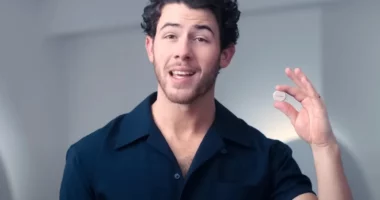Bradley Walsh’s Vertigo Struggle, a beloved TV presenter known for hosting The Chase and starring in Bradley & Barney Walsh: Breaking Dad, has openly shared his health challenges, including vertigo—a condition that has influenced his professional and personal life. This article explores Walsh’s experiences, the nature of vertigo, its causes, symptoms, and potential consequences if left untreated.

Bradley Walsh’s Experience with Vertigo
Walsh’s struggle with vertigo was highlighted during the filming of Breaking Dad, where he and his son Barney embarked on adventurous journeys across Japan and Thailand. One memorable moment occurred when Walsh attempted to cross a notoriously unstable bridge in Japan.
His fear of heights, compounded by vertigo, made the experience overwhelming. Radio host Chris Evans noted Walsh’s visible discomfort, describing him as “white as a sheet.” Walsh himself admitted that people often misunderstand the severity of his condition, which can trigger intense physical reactions like nausea and dizziness.
Despite these challenges, Walsh has shown resilience. He remarked that his condition has improved over time, allowing him to better manage vertigo episodes during filming. Barney also reflected on their shared experiences, acknowledging how age has made him more cautious about risky stunts compared to his younger years.
Also Read | Sherri Shepherd’s Hilarious Take on Perimenopause: Hot Flashes, Chin Hair, and Pregnancy Surprises
What is Vertigo?
Vertigo is a sensation of motion or spinning when you are stationary. Unlike general dizziness, vertigo specifically affects balance and spatial orientation, making individuals feel as though they or their surroundings are moving. According to the NHS website, vertigo gives you that sensation that “you or everything around you is spinning”, affecting your balance. It can range from mild episodes lasting seconds to severe attacks persisting for hours or even days.
Types of Vertigo
- Peripheral Vertigo: Caused by issues in the inner ear or vestibular nerve, such as benign paroxysmal positional vertigo (BPPV), which occurs when crystals in the inner ear move abnormally.
- Central Vertigo: Stemming from brain-related problems like strokes or infections, this type often presents with more severe symptoms.
What Causes Vertigo?
Vertigo can result from various conditions:
- Inner ear disorders: Such as BPPV or Meniere’s disease.
- Head injuries: Trauma affecting balance systems.
- Migraines: Often linked to central vertigo.
- Neurological issues: Including strokes or cerebellar dysfunction.
Triggers may include sudden head movements, changes in position, stress, or even certain medications.
How Do I Know If I Have Vertigo?

Common symptoms of vertigo include:
- Spinning sensations.
- Nausea or vomiting.
- Difficulty maintaining balance.
- Abnormal eye movements (nystagmus).
- Ringing in the ears or hearing loss.
If these symptoms occur frequently or severely, consulting a healthcare provider is essential.
What Happens If Vertigo Is Left Untreated?
Ignoring vertigo might seem tempting—Bradley’s pushed through it—but it’s not without risks. For many, like those with BPPV, it can fade on its own within weeks, as the NHS suggests. But if it lingers or worsens, daily life takes a hit. Picture Bradley trying to host The Chase while feeling like he’s on a Tilt-A-Whirl—balance issues could lead to falls, a real worry at 64. Statistics show falls are a top injury cause in older adults, and vertigo ups that odds. Untreated, severe cases might signal deeper issues. Untreated vertigo can lead to:
- Chronic imbalance.
- Increased risk of falls and injuries.
- Persistent nausea impacting daily life.
- Potential progression of underlying conditions like Meniere’s disease or neurological disorders.
What Triggers Vertigo Attacks?
Vertigo doesn’t strike randomly—specific triggers set it off, as Bradley learned the hard way. Head position changes are the big one, especially with BPPV. Rolling in bed, looking up, or crossing a swaying bridge like he did can jolt those ear crystals loose. Stress or anxiety can crank up the intensity, too—imagine filming under pressure while dizzy. Vertigo attacks can be triggered by:
- Sudden head movements (e.g., tilting backward).
- Stress or anxiety.
- Changes in altitude or pressure (e.g., flying).
- Certain foods or alcohol consumption.
- Prolonged inactivity leading to inner ear dysfunction.
Barney Walsh’s Perspective
Barney Walsh has been a supportive presence throughout Bradley’s health journey. As part of Breaking Dad, Barney challenges his father to adventurous activities while remaining mindful of Bradley’s limitations. Their shared experiences have resonated with audiences, inspiring many viewers to reconnect with loved ones through travel and bonding.
Managing Vertigo: Tips and Treatments
Bradley Walsh’s vertigo hasn’t stopped him from shining as a presenter, but it’s undeniably shaped his experience on Breaking Dad. From pale-faced bridge crossings to Barney’s worried glances, it’s a real challenge he’s faced head-on. To alleviate vertigo symptoms:
- Sit still in a quiet room during an attack.
- Avoid sudden movements.
- Perform balance exercises like the Epley maneuver under medical supervision.
- Medications may help manage nausea and dizziness.
- Physical therapy and lifestyle adjustments can also improve long-term outcomes.
Bradley Walsh’s openness about his health struggles sheds light on the challenges faced by individuals living with vertigo. His resilience and Barney’s unwavering support highlight the importance of understanding and managing this condition. Whether through medical interventions or lifestyle changes, addressing vertigo ensures a better quality of life for those affected.
Also Read | Chris Pratt Shares Joyful News on 3 Kids Post-Health Challenges










